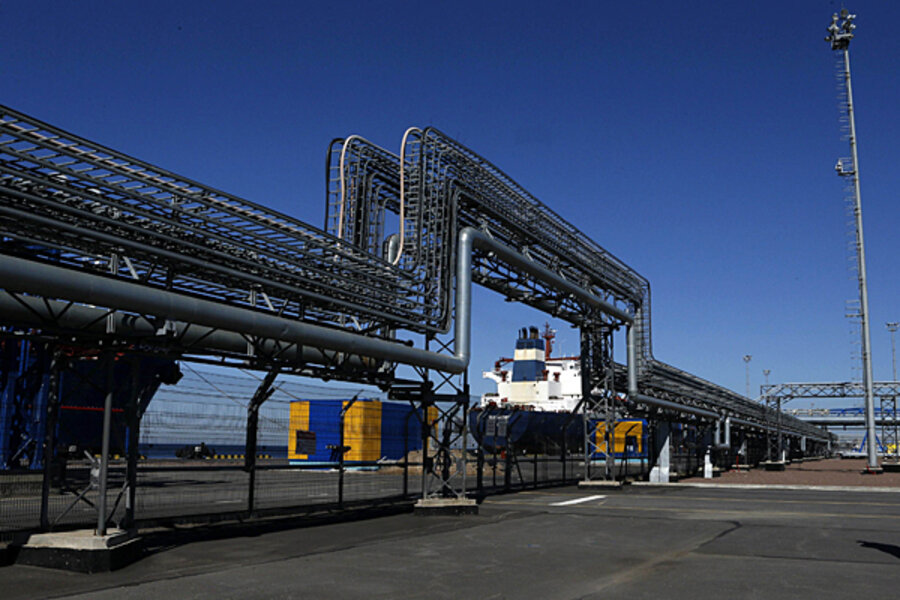How long can Russia's oil and gas wealth last?
Loading...
The Russian economy may not be able to finance the Kremlin's ambitions in Eastern Europe for much longer because the country's oil and gas output is no longer a strong support of growth.
Russian Energy Minister Alexander Novak said on May 2 that gas supplies through Ukraine might be severed unless Kiev pays in advance for its June deliveries.
Russian energy company Gazprom cut gas supplies through Ukraine in 2009 because of contractual disputes. The deal that ended the impasse left Kiev with some of the highest gas debt obligations in the region. Now Russia says Kiev owes more than $11 billion for unused gas last year, a debt Ukraine's energy company, Naftogaz, disputes.
Russia meets about a quarter of European natural gas needs, most of it via a Soviet-era pipeline network in Ukraine. Overall, however, Russia's gas output is in decline. Gazprom, one of the largest companies in the world, has experienced a production decline of nearly 8 percent, to 40 billion cubic feet per day in March.
Though European countries are the top oil export destination for Russian crude, China is the third biggest importer of Russian oil, suggesting that sector is a bit more diverse than gas. Despite Russia's move to embrace Asian economies, where energy demands are greater, oil output declined 0.2 percent in April, the fourth month in a row for a slip. (Related Article: Why Hasn’t The U.S. Gone After Gazprom?)
The International Monetary Fund (IMF) warned in an April 30 report that Russia's model for economic growth is outdated.
"After almost 15 years of growth based on rising oil prices, successful macroeconomic stabilization policies and increasing use of spare resources, this growth framework has reached its limits," the Fund warned.
Russian President Vladimir Putin has used an economy propped up by his country's energy wealth to support a policy of leash tightening in former Soviet republics like Ukraine and Georgia. With the IMF predicting 0.2 percent growth for Russia, however, his coffers may not be as deep as they were when Moscow laid claim to territory in Georgia in 2008.
The collapse of the Soviet Union in 1991 was brought on in part by military overreach, notably in Afghanistan. Now, Putin's Russia is at risk of mirroring the efforts of his predecessors by embracing a regional policy in the region described by European Energy Commissioner Gunther Oettinger as one of "divide and rule."
Russia is in the midst of its longest streak of declines in oil and gas production in years, its economy is in shambles and its leverage on the international stage is in question. With Putin clinging defiantly to the last threads of the Iron Curtain, it may be more than just Russia's economic model that's outdated.







